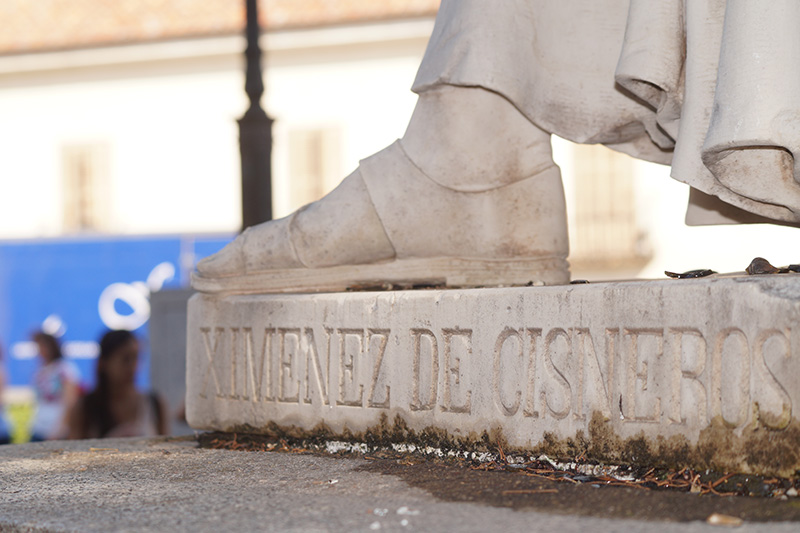
CALL FOR PAPERS
9th International Conference on Public Service Interpreting and Translation
EXPERIENCE AND TRANSFORMATION IN PSIT
11th to 13th March 2026
University of Alcalá (Madrid)
CALL FOR PAPERS
DOWNLOAD FULL CALL FOR PAPERS
In an increasingly globalised and interconnected world, Public Service Interpreting and Translation (PSIT) is facing unprecedented challenges. The 9th International Conference on PSIT (PSIT9) aims to delve into the complexities of contemporary society, marked by all kinds of crises (economic, war, migration, and environmental), technological advances, cultural diversity, and ethical considerations. It will ultimately focus on their impact on the changing demands of PSIT
Several issues pose complex challenges and require further discussion, such as the use of machine translation (MT) and generative artificial intelligence (GenAI), the need for inclusive language, and the gender perspective; or ethical issues that arise when working in high-risk environments such as in health, legal or humanitarian fields, In these fields, principles such as accuracy, confidentiality and impartiality are essential. In the same context, the well-being of the translator, interpreter or intercultural mediator, especially when faced with traumatic situations, is of the utmost importance.
International organisations, NGOs and humanitarian groups are increasingly aware of the need for good communication management and the importance of technology to improve the dissemination of information in crisis situations.
There is, in turn, a growing concern about the unequal accessibility of these digital resources to vulnerable communities, as well as the lack of attention to minority languages, which can lead to further social exclusion. The use of technology in international organisations and institutions raises ethical and quality issues, as seen in the increasing reliance on AI-assisted translations in asylum and immigration related settings.
Despite the growing popularity of GenAI and large linguistic models (LLM) and their use in all fields of knowledge, there is also the fear that technological progress will aggravate the already degraded quality of communication with migrant populations, and the development of languages of lesser difussion (LLD) programmes. Even so, it is undeniable that large technology companies are playing an increasingly important role in life-altering decision-making environments, such as the administration of justice, asylum and refugee applications, or healthcare. However, AI is already known to have limitations, both in the data and in the algorithms used, which raises ethical challenges.
Ultimately, changes in society generate new linguistic, social, and cultural realities. One of the main objectives of PSIT is to ensure accessibility to different audiences with diverse communication needs, unfamiliar challenges, and generally limited resources.
In this context, the PSIT9 Conference explores the multidimensional challenges that contemporary societies face. Its main objective is to stimulate a debate on the challenges and developments of AI, MT and MI and how they affect linguistic diversity, accessibility, as well as language communities in a hyper-connected world. Researchers / teachers / practitioners / language service providers are invited to submit proposals in English or Spanish to contribute to the inter- and transdisciplinary debate on PSIT, language rights, and technology.
General (but not exclusive) topics:
- Innovative projects on the development and application AI and MT to PSIT
- Empirical studies on vulnerable organisations, technologies, and communities
- Ethical and quality concerns in the use of technology in PSIT
- Impact of technology on PSIT, especially on gender and human rights issues
- Challenges posed by AI to vulnerable language communities
- Experiences in humanitarian crisis response, IA and PSIT
- Theoretical and conceptual reflections on PSIT in the AI era
- Studies on strategies and tools (or developments) that have been successful in promoting the recognition of PSIT as a profession
- Mental health in PSIT
The proposals will be subject to an anonymous peer review process to ensure the quality of the accepted proposals. Speakers will have 20 minutes for oral presentations, followed by 10 minutes of discussion.
Round table proposals should include: the title, a general description of the topic and reference to at least three participants’ perspectives. The participants from the round table panel will have 1 hour and 30 minutes for presentations and discussions.
The preferred languages of the Conference are Spanish and English.
Important dates
- Submission of proposals: DEADLINE EXTENDED UNTIL September 30, 2025, via the congress website.
- Notification of the decision of the Scientific Committee: November 30, 2025
- Registration: by 20 December 2025 (early bird registration) or by January 30, 2026.
- Submission of the full communication for publication in the Conference e-book: by October 30, 2026.
- If interested, submission of article for FITISPos IJ (journal): by 30 November 2026.
The style for each option must be followed accordingly. Otherwise, papers will not be considered for publication.
Further information: tisp9@uah.es


